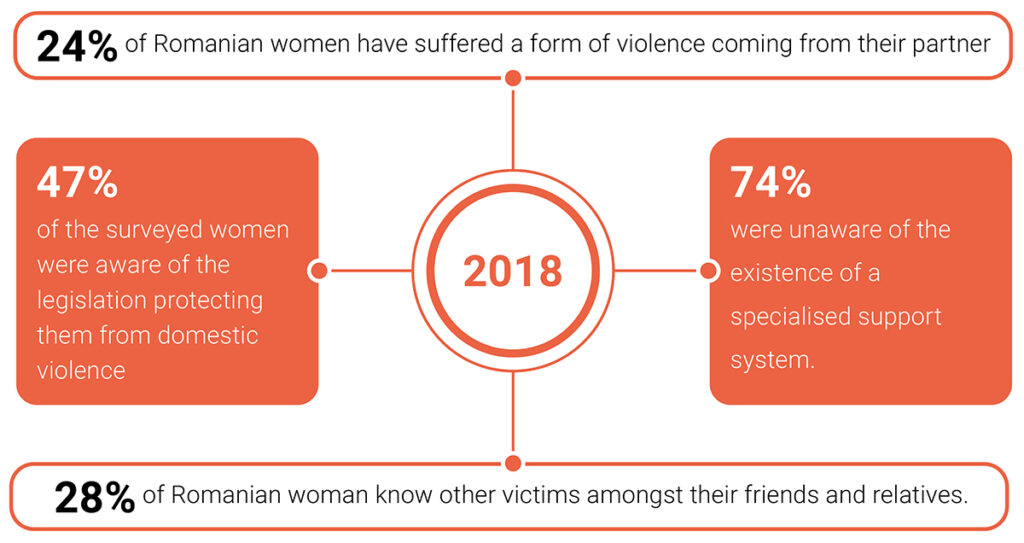Domestic violence affects people across the world and social backgrounds every day, in both normal and crisis situations. UN statistics show that,
globally, one in three women is a victim of physical aggression. However, in times of crisis, cases of domestic violence tend to escalate amid high
tensions. The current crisis caused by the pandemic is no exception, especially in a country like Romania where, unfortunately, family abuse is often
normalised. In 2019, the Romanian police registered 44.094 cases of domestic violence and 51 deaths.


Statistics from 2018 show that 24% of Romanian women have suffered a form of violence coming from their partner, while 28% of them know other victims amongst their friends and relatives. Only 47% of the surveyed women were aware of the legislation protecting them from domestic violence and 74% were unaware of the existence of a specialised support system.

Over the last year, we’ve witnessed the dangerous merging of domestic violence and homelessness — both of which were problems before the pandemic but have become more urgent since the arrival of the virus. Elevated stress levels have led to an increase in abusive behaviour, while stay-at-home-orders have made it difficult for survivors to seek help. The economic fallout from the virus also is pushing many into joblessness, homelessness, and unsafe environments.
The National Agency for Equal Chances (ANES) highlighted that the number of calls to the special line dedicated to reporting cases of domestic violence doubled in the first month of lockdown (in comparison to the same period last year). As a new generation suffers from the horrors of domestic violence, the effects of the lockdown are likely to continue even after the lifting of movement restrictions.
Housing insecurity is a significant factor in the decision of many victims of domestic violence to remain in abusive relationships and in the continued exposure of too many children to that violence. The lack of affordable housing in Bucharest makes it harder for those experiencing domestic violence to leave the person causing them harm. To break this cycle of violence — a cycle that often extends itself across generations — we are committed to support those most at risk and empower them to create new beginnings – free from fear.


